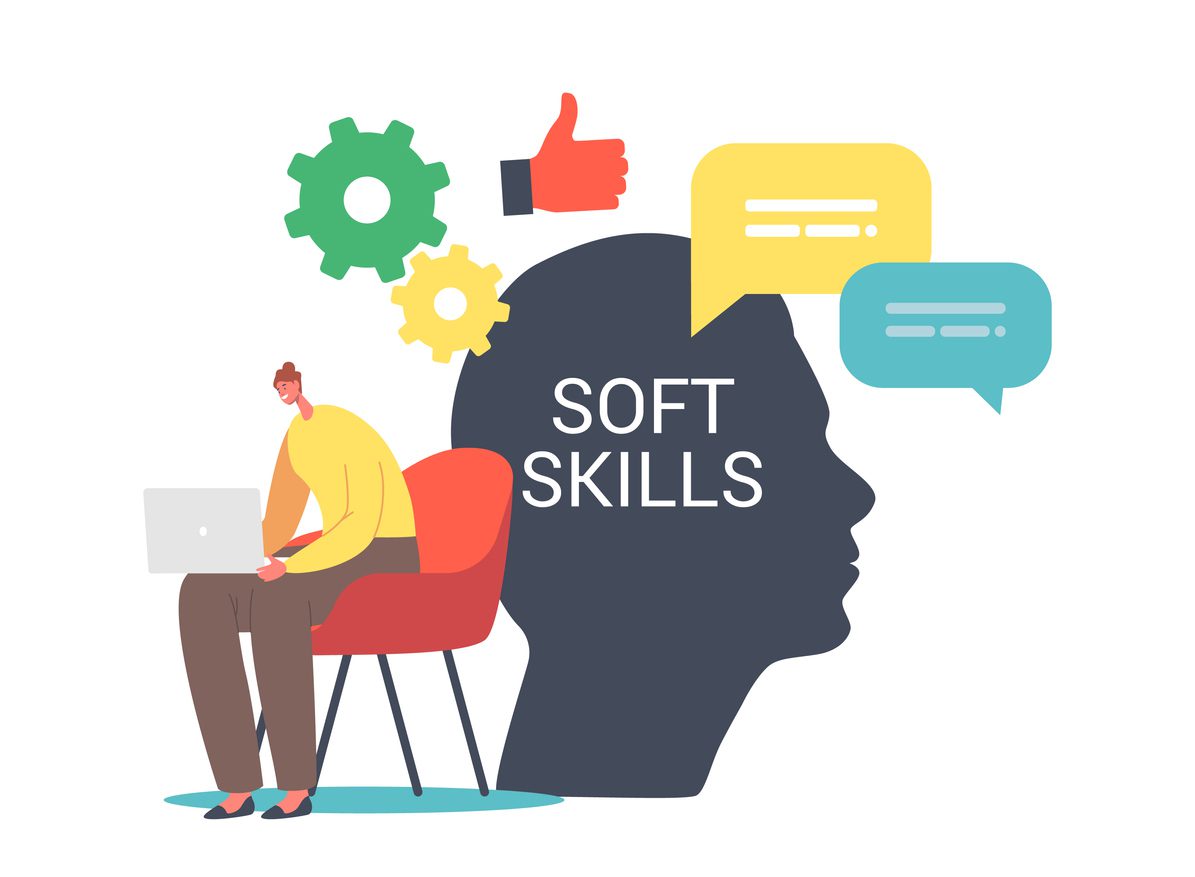Performing the technical aspects of a job are important, but in order to become a truly successful leader or trusted employee, soft skills have become a requirement. Soft skills are behaviors, personality traits, and work habits — such as critical thinking, perseverance, communication, and collaboration — that help people prosper at work. These skills are tough to measure, but are critical to success.
Businesses are taking notice of the importance of positive relationships at work. Many large corporations are investing in the creation of social spaces that encourage frequent social interaction. These environments foster increased communication and stronger social bonds, the combination of which translates into overall increased productivity and positive workplace culture.
Why Soft Skills Have Become So Important
As more and more job activities become automated, soft skills, which cannot yet be replicated by machines, have become more important. Soft skills such as empathy, emotional intelligence, kindness, mindfulness, adaptability, integrity, optimism, self-motivation, grit and resilience have become crucial success factors.
The ability to adapt and learn a new way of conducting a particular role is more valuable given how fast business is evolving. With digital transformation in high gear, change will be a constant factor in the workplace. We have seen job roles transform into something completely different while others have disappeared completely. Soft skills are difficult to quantify, but they play a critical role in performance and productivity. They are key to building relationships and creating opportunities for advancement. They help facilitate human connection.
An MIT study found that top performers have a superpower: happiness. When you’re happy, your brain releases serotonin, dopamine, and oxytocin. Not only do these neurotransmitters make you feel good, they also connect the learning centers of your brain, sparking creativity and innovation. They unleash your potential to solve problems and spot opportunities that otherwise would have been missed. Essentially, happiness makes you smarter.
What are the Most Valuable Soft Skills?
Soft skills are unquantifiable professional attributes. This can make it difficult for hiring managers and others involved in the hiring process to assess them in potential hires, making them an important but elusive set of skills to look for. Soft skills enable employees to navigate their environment, work well with others, perform well and achieve their goals with complementing hard skills.
Some of the most valuable soft skills are:
- Attitude
- Networking
- Problem solving
- Communication (both listening and speaking)
- Work ethic
- Teamwork
- Leadership styles/qualities
- Empathy
- Time management
- Decision making
- Critical thinking
- Conflict resolution
6 Reasons Why Soft Skills are Needed To Run a Successful Business:
- Create a Healthy Work Environment: Empathy in the workplace is just as important for leaders as listening and communicating. Empathizing with the challenges faced by employees nurtures a supportive and positive work environment and helps to eliminate unhealthy competition. Employees are empowered and prepared to take risks and work together to move the organization forward.
- Facilitate Positive Change: Clear communication within the organization is critical to achieving and aligning goals. An effective and open communication channel creates efficiency and productivity. Employees seek solutions and tackle problems that bring about positive change within the company.
- Improve Decision-Making: Soft skills such as listening, problem solving, and attitude are critical for CEOs and managers that are burdened with the responsibility to make decisions that impact the entire organization on a daily basis. Team members must feel heard and valued in order to make sure innovative ideas are given a voice.
- Improve Customer Service and Boost Sales: Active listening and problem solving are critical in order to effectively meet the needs of customers. Engaging with customers with compassion and positivity will improve all aspects of customer service.
- Increase Employee Retention: When leaders focus on boosting employee’s soft skills, retention rates increase. Employees feel valued and realize the organization cares about their professional growth. This ultimately leads to committed and engaged employees that are devoted to the success of the organization.
- Develop Better Leaders: Soft skills like creativity, responsibility and excellent communication skills can be applied to any job throughout an organization, setting up employees for success in new roles.
Creating a True Competitive Advantage
Communication, relationships, and connectivity are critical in today’s business landscape. Recruiting and retaining employees with the appropriate blend of soft skills involves a measured and strategic approach, as well as time and patience. It is important to learn more about your potential candidates and current employees as humans interacting with other people.
Good relationships are the key to happiness and productivity in an organization. Happily, the ability to improve nearly every relationship is well within your reach, because the formula to success begins with self-awareness.
The way in which we see the world, set expectations, and react to difficult situations is so instinctive, we have to make a conscious effort to step back and consider how somebody else could possibly react differently to the same set of circumstances. To make the most of our relationships with our colleagues, we need to learn how to be as emotionally intelligent as we are intellectually competent. Understanding the roots of others’ behavior and how to best communicate with them creates a better environment for collaboration.
Velocity Advisory Group has found that when leadership styles are aligned and employees are empowered, the path becomes clear and teams have the tools they need to create a high-performing culture. An organization can shift from reactivity to proactivity, reducing conflict and accelerating success.

